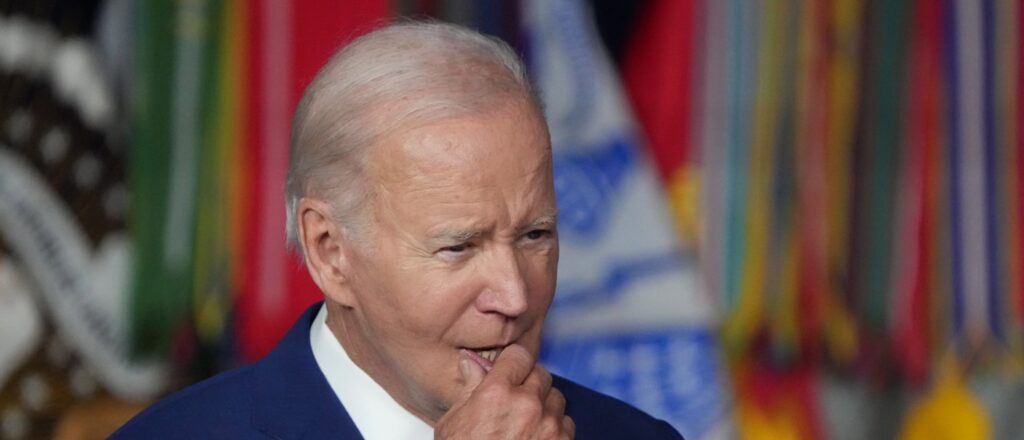The Inflation Reduction Act did nothing to address the causes of inflation and was instead named as such due to the politics of the moment, according to economists who spoke to The Associated Press.
Economists say that the $740 billion legislation, which was passed one year ago on Wednesday, does not deserve credit for bringing down inflation, and President Joe Biden has also come out to say that the legislation was not meant to address record-high inflation, according to the AP. Inflation reached 9.1% in June 2022 but has since come down to 3.0% in June and ticked back up to 3.2% in July. (RELATED: ‘Inflation Tax’ Is Higher Than Federal Income Tax)
“We can say with pretty strong confidence that it was mostly other factors that have brought inflation down,’’ Alex Arnon, economic and budget analyst for the University of Pennsylvania’s Penn Wharton Budget Model, told the AP. “The IRA has just not been a significant factor.’’
Before the bill was signed in August 2022, the Congressional Budget Office (CBO) said that the legislation would have a negligible effect on inflation, according to a letter by the CBO to Republican South Carolina Sen. Lindsey Graham.
President Biden’s Inflation Reduction Act is lowering costs for hardworking families, combating the climate crisis, and reducing the deficit.
All while making the largest corporations finally begin to pay their fair share. pic.twitter.com/m4iKD4QL41
— The White House (@WhiteHouse) August 5, 2023
“I can’t think of any mechanism by which it would have brought down inflation to date,” Jason Furman, Harvard University economist, told the AP.
“It has nothing to do with inflation: it has to do with the… $368 billion, the single largest investment in climate change anywhere in the world,” Biden said about the Inflation Reduction Act at a campaign reception in Albuquerque, New Mexico, on Aug. 8. “And it’s beginning to take hold.”
Instead, some economists are saying that factors like oil and gasoline prices falling from a high last year, the Federal Reserve’s interest rate hikes and recovered supply chains that were hurt by the COVID-19 pandemic are to credit for the fall in inflation, according to the AP.
At the July Federal Open Market Committee meeting, the Federal Reserve increased interest rates for the 11th time since March 2001, bringing rates within a target range of 5.25% and 5.50%. The rates are the highest they have been since January 2001.
The International Energy Agency projected that oil prices will continue to climb in the coming months following OPEC+ production cuts from Russia and Saudi Arabia that will constrict the supply of oil.
All content created by the Daily Caller News Foundation, an independent and nonpartisan newswire service, is available without charge to any legitimate news publisher that can provide a large audience. All republished articles must include our logo, our reporter’s byline and their DCNF affiliation. For any questions about our guidelines or partnering with us, please contact licensing@dailycallernewsfoundation.org.


